The Architecture of The Cole
The architecture of The Cole is a romantic and deliberate reference to the grand Tropical Mid-Century Modernism of Oscar Niemeyer, Le Corbusier and Rio de Janeiro's Copacabana.
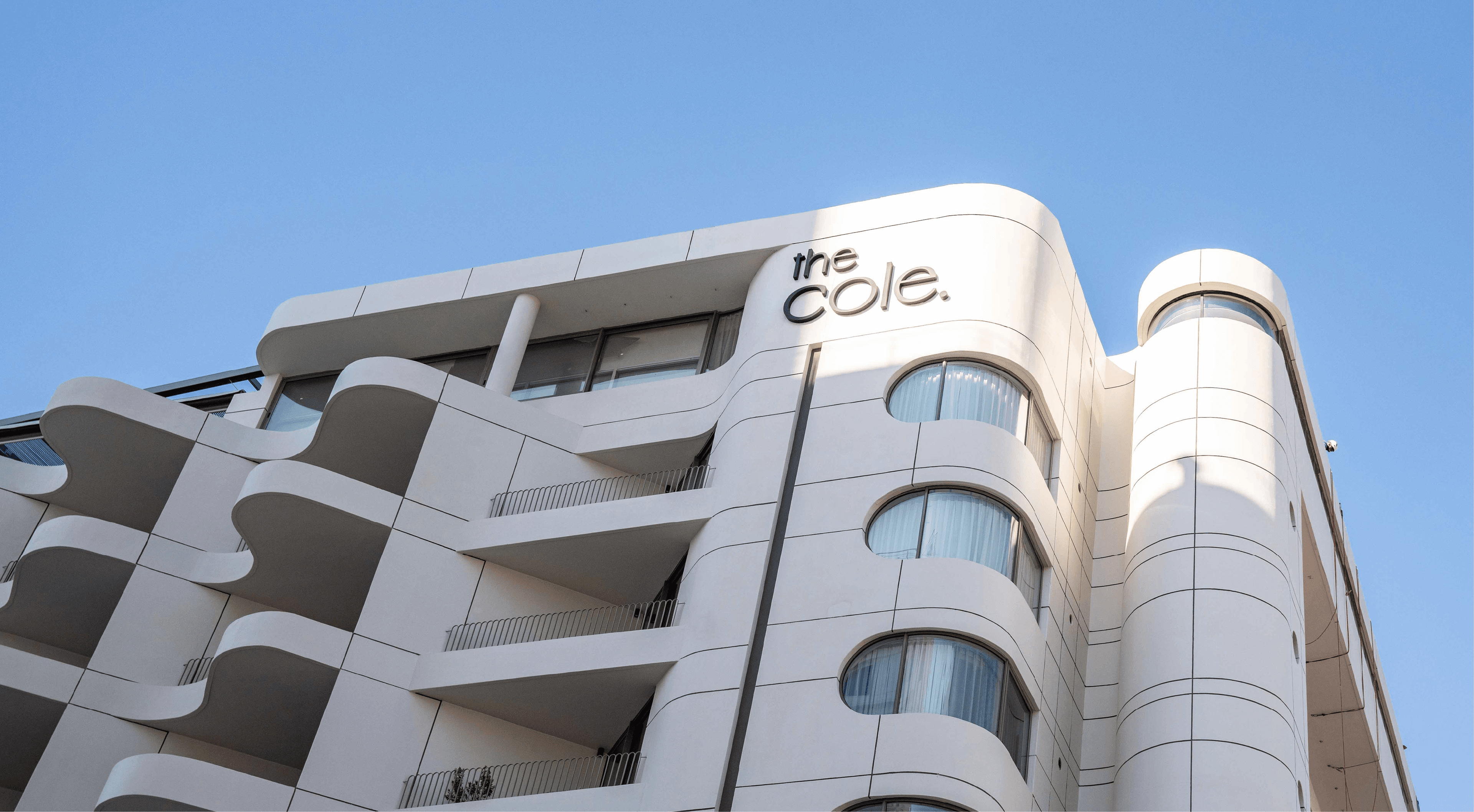
The architecture of The Cole is a romantic and deliberate reference to the grand Tropical Mid-Century Modernism of Oscar Niemeyer, Le Corbusier and Rio de Janeiro's Copacabana.
The Cole. 1 Church Street, Sea Point, Cape Town, Western Cape. Designed by famed South African architect, Robert Silke, a member of the world's second-oldest profession and ranked as South Africa's oldest young architect. His firm, Robert Silke & Partners, is known for its sculpturally curvaceous buildings that transcend the ascetic functionalism of the developer norm. The design style is modern, sculptural and is simultaneously both futuristic and nostalgic.
The architecture of The Cole is a romantic and deliberate reference to the grand Tropical Mid-Century Modernism of Oscar Niemeyer, Le Corbusier and Rio de Janeiro's Copacabana. Sweetly coloured in tiramisu créme shades (and contoured in champagne bronze eyeliner) the building is svelte, muscular and luxuriously sculpted. The Cole is simultaneously modern and baroque, as if architecture was a jazz movement.
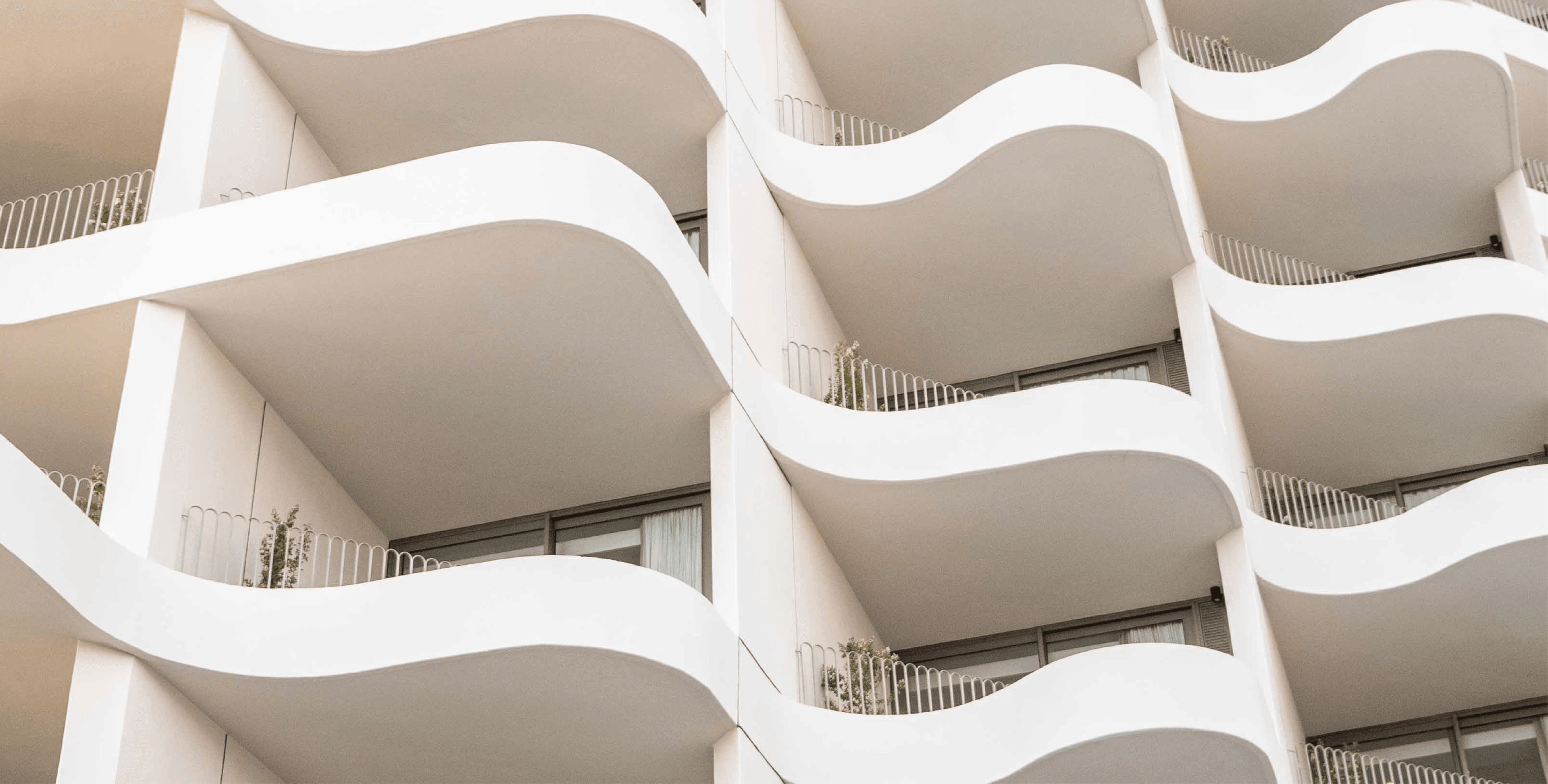
We sat down with Robert to pick his brain about the brief, the process and the execution of designing and ultimately building The Cole.
Since sea-facing land has become so rare, The Cole may well prove to be one of the Atlantic Seaboard's last great beachfront buildings - the latest in a long line of great sea-front towers, stretching all the way from Mouille Point in the east, to Bantry Bay in the West. The brief was to realise the location's highest possible potential as a prime sea-facing property.
Beach Road is one of the world's great sea-front stretches, with a magnificent, west-facing built fabric and a rich architectural provenance to live up to. We were deeply influenced by mid-century Tropical Modernism - and the grand Brazilian ouvres of Oscar Niemeyer, which is (incidentally) the original source material for much of the Sea Point beachfront. If you're wondering about the inspiration for The Cole's outrageous balconies, look no further than the promenade of Rio's Copacabana.
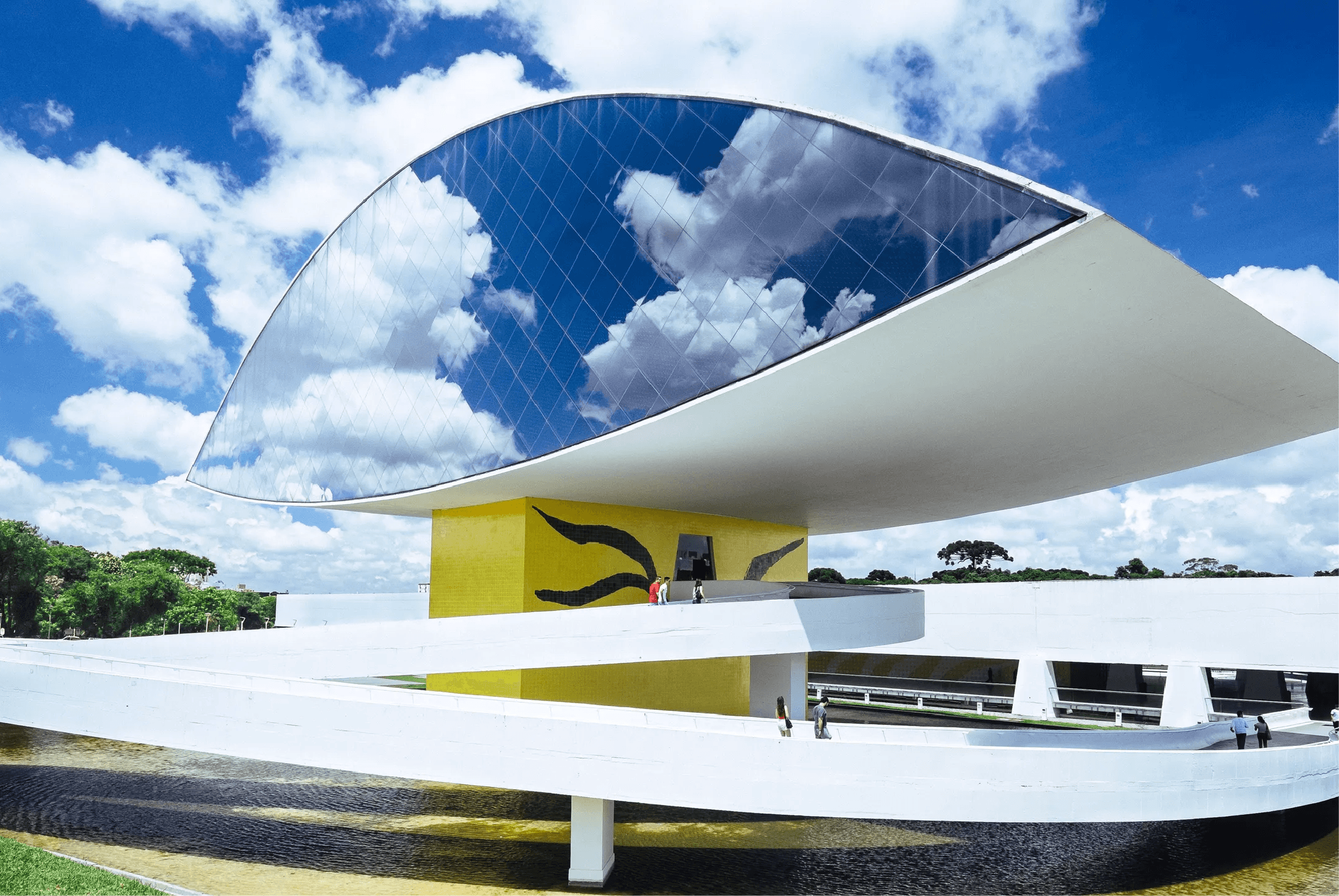
Rio notwithstanding, the world's great cities and beaches generally tend to face westwards, and The Cole is no exception. The Cole (like its typical guest) tends to yearn for the sun and sea, with lavish, baroque balconies designed to catch the golden rays of the setting sun on its soft voluptuous curves - whilst (at the same time) protecting its guest rooms from the full strength of the afternoon light.
Baroque, Jazz-Age, Tropical Modernism.
The Cole's facade is organic, alive and dynamic. The Cole is greedy for the sun and sea, and literally stretches itself out (even beyond the boundaries of its ocean-front site) and cranks itself to a westward bearing of 45° - all to achieve unbroken sea views for its large and luxurious guest rooms.
The Cole is completely and utterly a product of its environment and could well be the last in a long line of great mid-century Modernist beachfront towers on Cape Town's Atlantic Seaboard.
“Whilst Modernism is (by definition) revolutionary, The Cole seeks to take the vernacular to the next ultimate level.”
- Robert Silke, The Cole Architect
The Cole is jazzy, frivolous and joyful, and everything (from the facade to the interiors) is about fun, aesthetics and the sheer luxury of being by the sea.
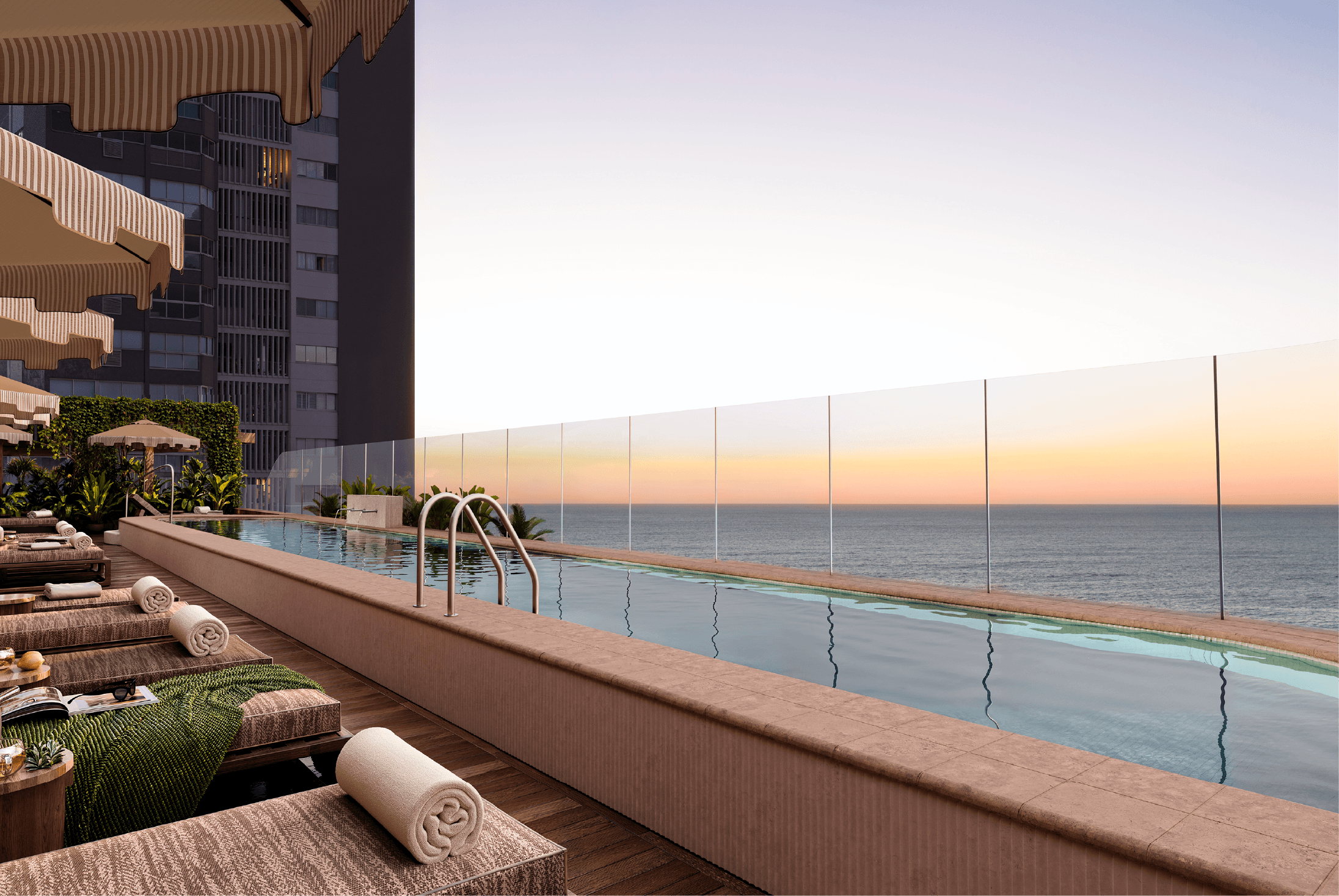
Definitely the 45° crank in the plan. You first arrive at the hotel, having been transported on the orthogonal streets (of Cape Town's orthogonal city grid) one enters a subtly-altered reality that (perhaps without realising it) starts to rotate the guests to a diagonal bearing - westwards and to the sea. Whilst the guest lifts are entered on the orthogonal, one exits (on one's room level) on the diagonal, setting one up for an unexpected (and remarkable) arrival experience in each guest room. From then on, every aspect of the guest experience is one of subtly (and delightfully) augmented reality.
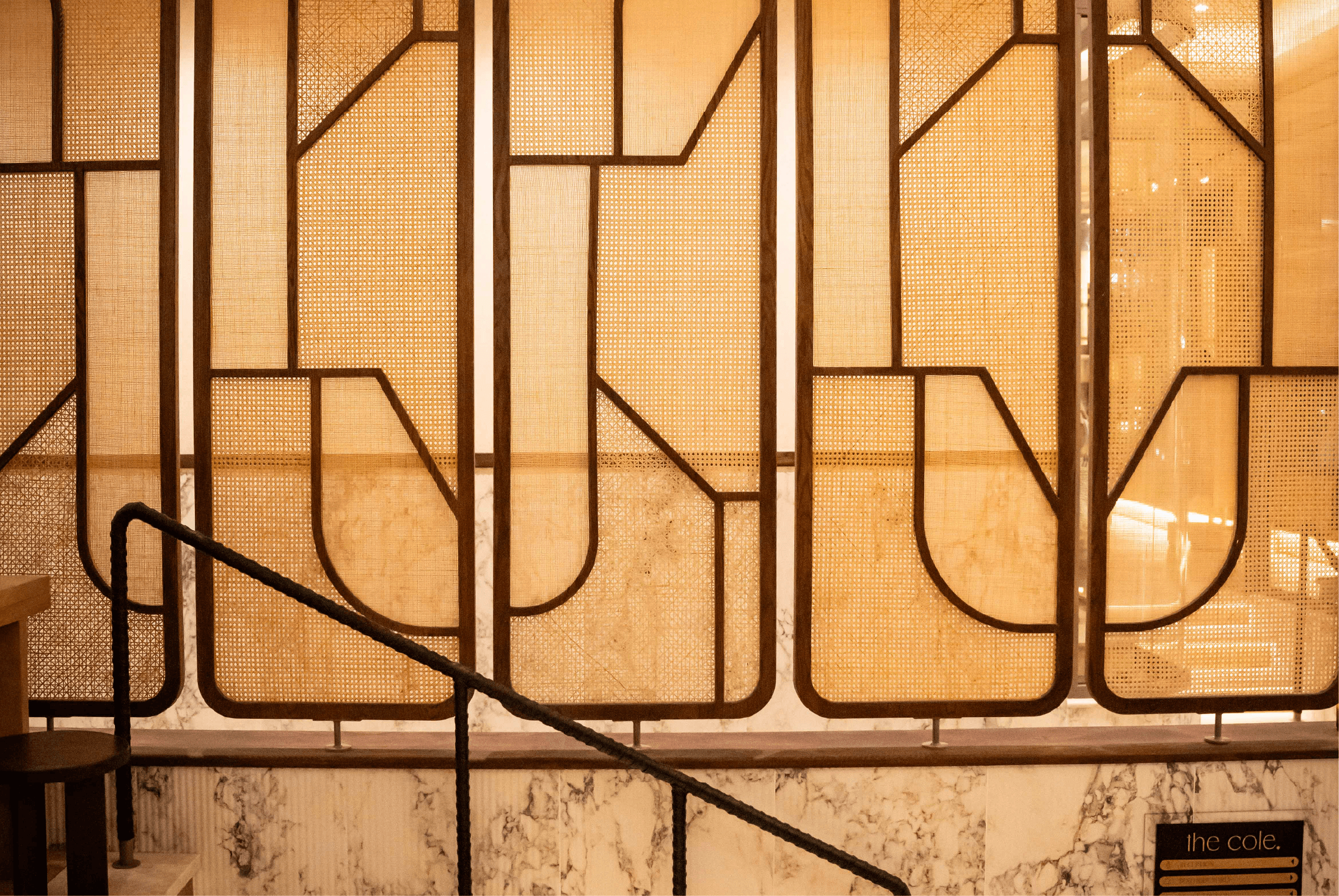
Everything at The Cole is about sandy, creamy beachfront hues. Sweetly coloured in tiramisu créme shades (and contoured in champagne bronze eyeliner) the plinth of the hotel is articulated in large slabs of hewn Egyptianate marble with warm metal details.
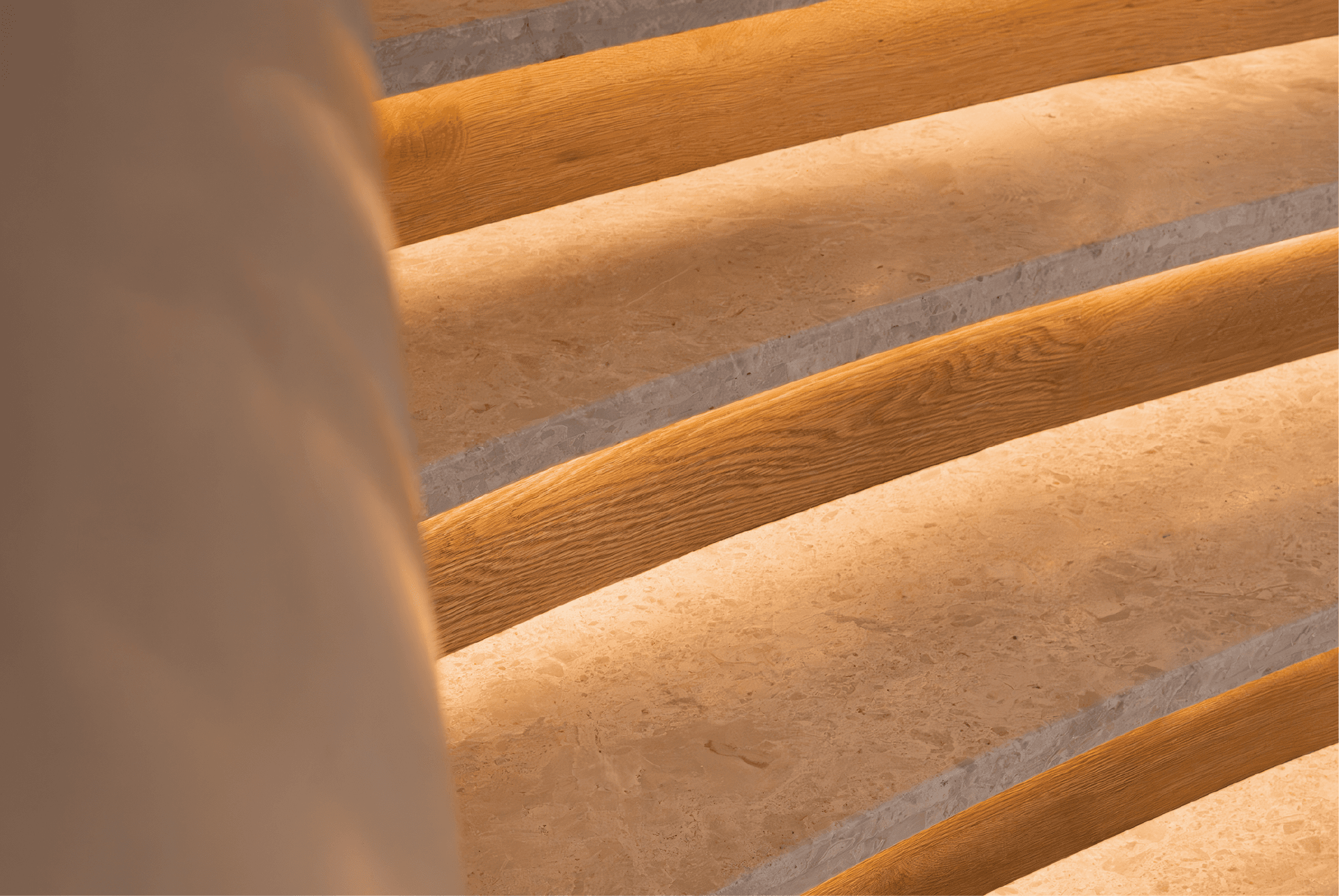
The Cole's baroque organic lines make the most of the Western Cape's rich tradition of fine artisanal plastering, a design-heritage dating back to the seventeenth century.
Fashion or trends were not a consideration in the architecture of The Cole. As such, the sheer originality of the built form will be hard (in future) to put a date to - and thus literally hard to date. And aesthetic sustainability is for us the ultimate future-proofing.
She had a stellar career as a jazz-singer, spanning the late 1950's up until the early 1970's, after which she "retired" to the european riviera, working the hotel circuit from Monaco to St Tropez (in the northern hemisphere summer) and splitting her winters between the southern hemispheric rivieras of Rio de Janeiro and Cape Town - where she could sometimes be spotted (in a state of disrepair) at the legendary La Perla, immediately across the road from The Cole.
“Working with Kove Collection's visionary team, who have a deep and sophisticated understanding of luxury and (above all) good fun.”
- Robert Silke, The Cole Architect
Your effortless city and seaside escape starts at The Cole.

The overall design of The Cole celebrates refined elegance with an adventurous spirit, perfectly capturing the vibrancy and charm of Sea Point.

Kove Collection’s rooftop restaurants take part in celebrating the lauded aspects of Cape Town.